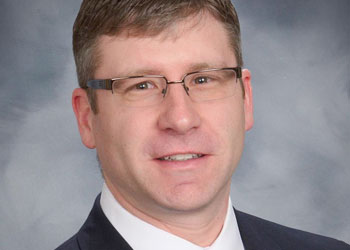I am a member of Alpha Sigma Tau, and I am particularly proud of my tenure as a sweetheart for the Phi Delta Theta, Tennessee Zeta chapter, at Belmont University. I am glad to have the opportunity to write to you today about mental health and alcohol awareness.
Here is what we know:
- Approximately 25-percent of young people will suffer from a diagnosable mental disorder in a given year.
- You don’t have to have a mental disorder to be concerned with mental health issues. Our mental health is affected by stress, lack of sleep, lack of life balance, death, divorce, break ups, etc.
- 80 to 90-percent of individuals who seek help from a mental health professional see a vast improvement in their symptoms.
- Two-thirds of those who need it will never reach out and talk about their issues.
We know these issues are out there, we know that treatment is working, but we also know that people are not seeking help. The reason for this is the stigmas that are associated with talking about problems, admitting problems, seeking counseling, and what it may mean to have a diagnosis of a mental disorder. People are afraid of being labeled as “crazy, weak, or unstable.” Worse, they wonder how seeking help may affect their social status, personal relationships, or careers.
This is National Collegiate Alcohol Awareness Week, and while it may not seem relevant to talk about mental health during this time, there is quite a connection between substance use and mental health. It is estimated that approximately two-thirds of individuals who abuse alcohol and/or drugs have a co-occurring mental health issue.
What does that mean for you? Well, it could mean that the brother in your chapter who makes a fool of himself every weekend by getting so belligerent that he can’t remember his own name or find his pants the next morning, could be drinking to mask an underlying sense of depression that he is too embarrassed to talk about. It could mean that your pledge brother who always seems to find himself in the middle of physical fights in the wee hours of the morning is drinking (and fighting) because he is struggling with coming to terms with the abuse he experienced as a child. Or, it could mean that the guy who you see drinking way more than you see doing anything else, is really failing out of school and drinks because he hates himself. Sure, it could be that these men and so many others like them just “like to party” or are “just being college students” or “just drink to relax.” It could be, but data shows that there is only a 34-percent chance of that being true. It is more likely that something else is going on with that person.
What can you do? You can erase the stigma surrounding mental health by creating a chapter culture where talking about emotions is celebrated. You can reach out to your campus counseling center. You can actually hold brothers accountable for their actions while under the influence, but ad to that a genuine concern for their mental health. There are a host of resources out there and literally hundreds of ideas about how to elevate these issues. Mostly, having the courage to understand what is really going on with people means that you have to be willing to listen without judgment, believe them, and help them seek help.
Colleen Coffey is the Program Manager for the National Mental Health Awareness Campaign and a speaker for CAMPUSPEAK. Learn more about her at www.campuspeak.com, or email her at colleen@nostigma.org.





